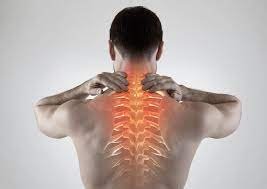Degenerative Disc Disease: Understanding and Addressing a Common Back Pain Source
Degenerative disc disease (DDD) is a condition that often elicits a sense of fear among patients. But this common, age-related condition is part of our body's natural ageing process. DDD is not technically a disease but a term used to describe the changes in the spine as people age. And while the time may sound intimidating, rest assured, Dr Nitin Khanna, a leading surgical expert, has guided countless individuals through this journey, addressing their fears and helping to manage their pain.
What is Degenerative Disc Disease?
In the spine, the discs are the shock-absorbing pads between the vertebrae. They work to provide flexibility and cushioning to the spine, allowing for movements like bending and twisting. As we age, these discs gradually wear down, lose their cushioning ability, and may cause pain—a condition referred to as degenerative disc disease.
Causes & Symptoms
Degenerative disc disease is primarily caused by ageing, but factors such as obesity, smoking, lack of physical activity, and injury can also contribute. The main symptom is often persistent back or neck pain that can worsen while sitting, bending, lifting, or twisting. It's also common for patients to have intervals of severe pain that come and go. In some instances, DDD can lead to numbness or tingling in the limbs if a worn disc compresses a nerve.
Diagnosis & Treatment
The diagnosis process for DDD typically involves a detailed patient history, physical examination, and imaging studies such as MRI or X-rays. Dr Nitin Khanna utilizes a patient-centric approach in diagnosing and treating DDD, with a focus on alleviating pain and improving quality of life.
Once diagnosed, treating degenerative disc disease aims to manage the symptoms and improve the patient's ability to function daily. Treatments may include pain management strategies, physical therapy, lifestyle changes, and in some cases, surgery.
Pain management may involve over-the-counter pain relievers or prescribed medication. Physical therapy can help strengthen the muscles supporting your spine, promoting flexibility and reducing pain. Lifestyle changes like quitting smoking, maintaining a healthy weight, and engaging in regular exercise can also significantly impact managing DDD.
Surgical options may be considered if conservative treatments do not provide adequate relief. Dr Nitin Khanna is well-versed in modern surgical techniques and has helped numerous patients regain their quality of life through minimally invasive spine surgery.
Coping with DDD
Living with DDD can be challenging, but by working with a qualified and caring medical professional like Dr Nitin Khanna, patients can navigate this journey successfully. Regular check-ups and a proactive approach to maintaining overall health can prevent the condition from worsening.
Dr Khanna strongly believes in patient education. Understanding the nature of your condition, including what to expect and how to manage symptoms, is key to a successful treatment outcome.
The Future of DDD Treatment
As research progresses, future treatments for degenerative disc disease may include new medications, improved surgical techniques, and even biological therapies, such as stem cell therapy. Dr Khanna is at the forefront of these advancements, constantly staying updated with the latest research to provide the best care for his patients.
Conclusion
Dealing with degenerative disc disease can be daunting. However, with the right guidance and support, managing the condition and maintaining a high quality of life is possible. Under the careful supervision of experts like Dr Nitin Khanna, patients with DDD can find relief from their symptoms and hope and confidence for a healthier future.
Remember, if you or a loved one is dealing with persistent back or neck pain, don't hesitate to reach out for professional help. Getting a proper diagnosis and starting the appropriate treatment is essential as soon as possible.
